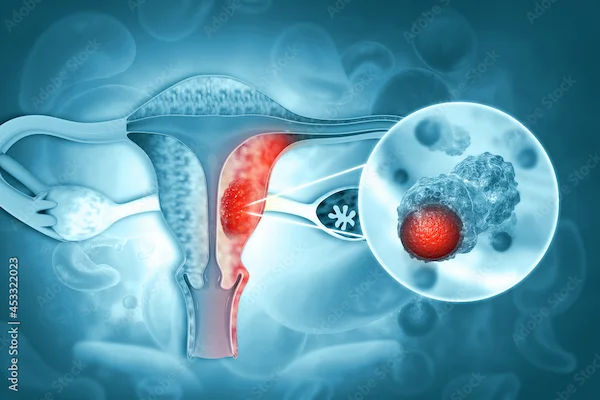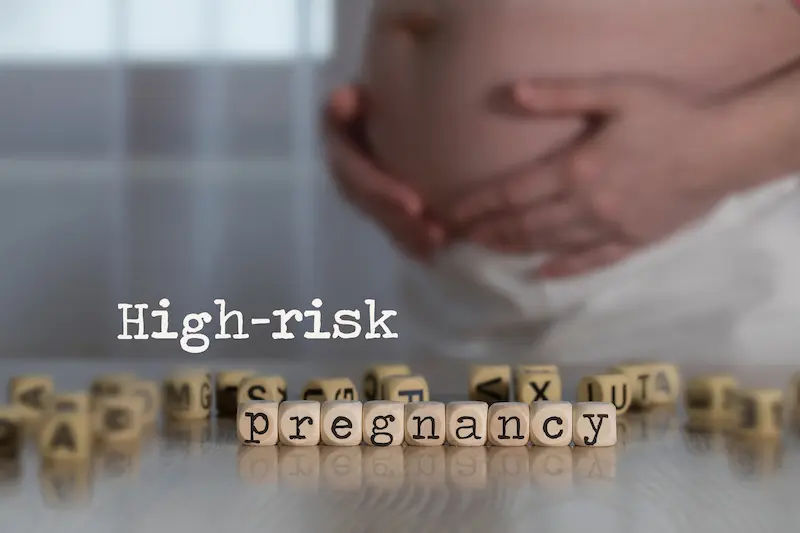Hyperemesis Gravidarum Overview and Management
Know all about hyperemesis gravidarum, differences with morning sickness, how it affects health and how to manage hyperemesis gravidarum and more.

.webp?tr=q-80,f-webp,w-350,dpr-2,c-at_max 700w)
Introduction
Pregnancy is a special phase of motherhood which comes with a few challenges, especially when severe nausea and vomiting make it difficult to enjoy this special time. If you or someone you know is experiencing extreme morning sickness, known as Hyperemesis Gravidarum (HG), this article will help you understand the condition and how to manage it effectively.
What is Hyperemesis Gravidarum?
Hyperemesis Gravidarum is a severe form of nausea and vomiting during pregnancy that goes beyond typical morning sickness. While many pregnant women experience mild nausea, HG is much more intense and can lead to dehydration, weight loss, and nutritional deficiencies if not managed properly.
Consult a Gynaecologist for Personalised Advice
How is HG Different from Regular Morning Sickness?
- Morning sickness usually occurs in the first trimester and may cause mild nausea and occasional vomiting. It often improves by the second trimester.
- Hyperemesis Gravidarum causes persistent, severe vomiting (multiple times a day), making it hard to keep food or liquids down. It can last throughout pregnancy in some cases.
Symptoms of Hyperemesis Gravidarum
If you experience any of the following, you may have HG and should consult a doctor:
- Severe nausea that doesn’t go away
- Frequent vomiting (more than 3-4 times a day)
- Weight loss (5% or more of pre-pregnancy weight)
- Dehydration (dry mouth, dizziness, dark urine)
- Difficulty eating or drinking without vomiting
- Extreme fatigue and weakness
What Causes HG?
The exact cause is still unclear, but experts believe it may be linked to:
- Hormonal changes – High levels of pregnancy hormones like hCG (human chorionic gonadotropin) and estrogen.
- Genetic factors – A family history of HG increases the risk.
- Multiple pregnancies – Women carrying twins or triplets are more prone to HG.
- History of motion sickness or migraines – Some studies suggest a connection.
How Does HG Affect Health?
If left untreated, Hyperemesis Gravidarum can lead to:
- Dehydration & electrolyte imbalance – This may require IV fluids.
- Nutritional deficiencies – Lack of essential vitamins and minerals can affect both mother and baby.
- Mental health struggles – Constant nausea and vomiting can lead to anxiety or depression.
The good news? With proper care, most women with HG deliver healthy babies.
Managing Hyperemesis Gravidarum
While HG can be tough, there are ways to ease symptoms and stay healthy:
1. Medical Treatments
- IV Fluids – If dehydration is severe, hospitalisation for fluids may be needed.
- Anti-nausea Medications – Safe options like Doxylamine + Pyridoxine (Vitamin B6) or Ondansetron can help.
- Vitamin Supplements – Thiamine (B1) and other vitamins may be prescribed to prevent deficiencies.
Always consult your doctor before taking any medication.
2. Dietary Tips
- Eat small, frequent meals – An empty stomach can worsen nausea.
- Choose bland, easy-to-digest foods – Crackers, toast, bananas, and rice are gentle on the stomach.
- Avoid strong smells & triggers – Spicy, greasy, or strong-smelling foods may make nausea worse.
- Stay hydrated – Sip water, coconut water, or electrolyte drinks slowly.
3. Lifestyle Adjustments
- Rest as much as possible – Fatigue can make nausea worse.
- Ginger or peppermint – Some women find relief with ginger tea or peppermint candies.
- Acupressure wristbands – These may help reduce nausea.
- Avoid stress – Relaxation techniques like deep breathing can help.
4. Emotional Support
HG can be mentally exhausting. Don’t hesitate to:
- Talk to a counsellor or join a support group.
- Ask for help from family and friends.
- Remember, it’s okay to feel frustrated—this is temporary.
When to Seek Emergency Care
Call your doctor immediately if you experience:
- Inability to keep any food or liquids down for 24 hours
- Signs of dehydration (no urine for 8+ hours, extreme dizziness)
- Blood in vomit
- Rapid weight loss
Final Thoughts
Hyperemesis Gravidarum is more than just morning sickness—it’s a serious condition that needs medical attention. If you’re struggling with severe nausea and vomiting, don’t suffer in silence. Reach out to your healthcare provider for support and treatment options.
Consult a Gynaecologist for Personalised Advice
Consult a Gynaecologist for Personalised Advice

Dr. Mona Yadav
Obstetrician and Gynaecologist
19 Years • MBBS, MD (Obstetrics & Gynaecology)
Dombivli
Nulife multispeciality, Dombivli

Dr. Parul Sharma
Obstetrician and Gynaecologist
8 Years • MBBS, MS (Obstetrics & Gynaecology)
New Delhi
THE DOCTORS NESST, New Delhi
Dr. K Anusha
Obstetrician and Gynaecologist
4 Years • MBBS, DGO
Yemmiganur
SRINIVASAA HOSPITAL, Yemmiganur

Dr. Asha Rani Singh
Obstetrician and Gynaecologist
24 Years • MBBS DGO
Delhi
Dr Asha Rani Singh Clinic, Delhi

Dr. Divyashree S
Obstetrician and Gynaecologist
7 Years • MBBS, MS (OBG)
Bengaluru
Apollo Clinic, JP nagar, Bengaluru
Consult a Gynaecologist for Personalised Advice

Dr. Mona Yadav
Obstetrician and Gynaecologist
19 Years • MBBS, MD (Obstetrics & Gynaecology)
Dombivli
Nulife multispeciality, Dombivli

Dr. Parul Sharma
Obstetrician and Gynaecologist
8 Years • MBBS, MS (Obstetrics & Gynaecology)
New Delhi
THE DOCTORS NESST, New Delhi
Dr. K Anusha
Obstetrician and Gynaecologist
4 Years • MBBS, DGO
Yemmiganur
SRINIVASAA HOSPITAL, Yemmiganur

Dr. Asha Rani Singh
Obstetrician and Gynaecologist
24 Years • MBBS DGO
Delhi
Dr Asha Rani Singh Clinic, Delhi

Dr. Divyashree S
Obstetrician and Gynaecologist
7 Years • MBBS, MS (OBG)
Bengaluru
Apollo Clinic, JP nagar, Bengaluru




